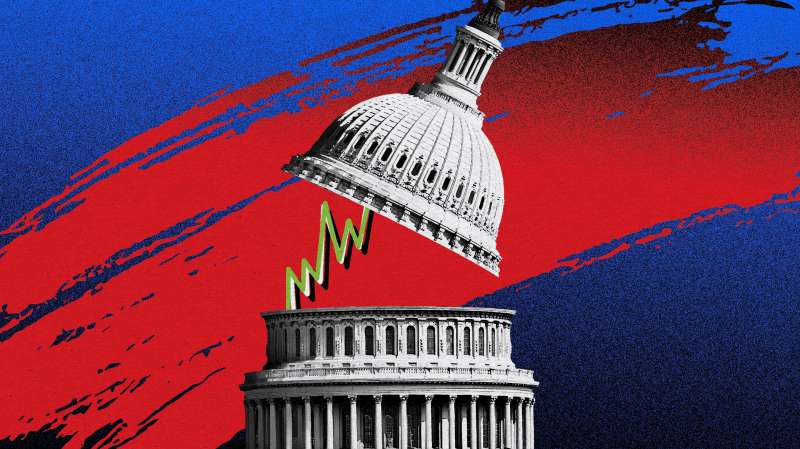What's Going on With the Debt Ceiling? 6 Common Questions, Answered

Tensions are running high in Washington as the debt limit deadline — and a potential government default — looms.
In an interview with ABC's This Week on Sunday, U.S. Treasury Secretary Janet Yellen warned of an “economic and financial catastrophe” if lawmakers cannot reach a deal soon. President Joe Biden is set to meet with legislators from both sides of the aisle on Tuesday to discuss how Congress might move forward.
Here are a few quick facts you need to know.
What is the debt ceiling?
The debt ceiling, also called the debt limit, is the maximum amount of money the U.S. federal government is allowed to borrow to meet its financial obligations. Those obligations include Social Security and Medicare payments, money due to government bondholders and creditors, military salaries, tax refunds and more.
Critically, the debt ceiling does not restrict future spending. Rather, it authorizes the government to spend money to fulfill its existing commitments. The U.S. hit the current debt limit ($31.4 trillion) in January.
What is the X-date?
Back in January, the Treasury Department began implementing what it called “extraordinary measures” to ensure the government could continue to make its required payments after breaching the debt ceiling.
The “X-date” is the date those measures will run out — when the government will actually be unable to fulfill all of its obligations and start to default on payments. Experts (including Yellen) say the X-date could come as early as June 1.
Who can raise the debt ceiling?
To avoid a default on the X-date, the debt ceiling can be raised. Congress has the authority to do this. But in order to raise the limit, lawmakers must reach an agreement that can pass both the House (where Republicans have a majority) and the Senate (where Democrats do).
Right now, lawmakers are deeply divided. Republicans generally want any agreement to raise the debt limit to include spending cuts, but the Biden administration has pledged to oppose those cuts.
How many times has the debt ceiling been raised?
Congress has acted to raise the debt ceiling (either permanently, temporarily or by revising its definition) 78 times since 1960, according to the Treasury Department.
What happens if the debt ceiling isn’t raised?
If the Congress doesn’t raise the debt ceiling by the X-date, the federal government will default on some of its obligations — something that has never happened before. Experts say the ramifications of a debt default could be far-reaching and dire. Think: a recession, major losses in the stock market and potential disruptions to Social Security payments.
Could Biden use the 14th Amendment to avert a default?
Recently, some experts have argued that President Biden could invoke a provision in the 14th Amendment (which requires the government to meet its financial obligations) to continue borrowing beyond the debt limit. The Washington Post reported recently that aides within the Biden administration have been evaluating the strategy.
But others view using the 14th Amendment to raise the debt ceiling without Congress as too risky. It's not clear whether Biden will pursue that course.
More from Money:
Are Social Security Payments at Risk if the U.S. Defaults on Its Debt?
Dollar Scholar Asks: Why Can't the Government Just Print More Money?
'Stock Prices Will Crater' if the U.S. Defaults on Debt, Economist Warns

